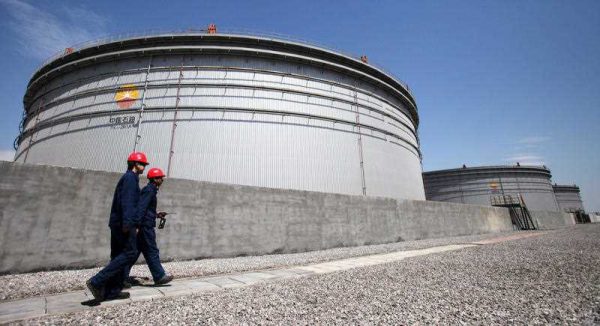These perceptions seem to derive from the phenomenon that China’s overseas direct investment (ODI) is mostly focused on energy and conducted by state-owned enterprises (SOEs).There is a general lack of knowledge on how Chinese SOEs do business overseas and the nature of their relationship with the central government. The argument of some Chinese analysts that Chinese oil companies abroad can and should play an important role in securing China’s energy security undoubtedly strengthens this popular impression in the West.
In reality, however, the story is less sinister but more complicated.
Overseas energy investment is not necessarily connected with a domestic energy shortage. China’s ODI reflects and is an extension of China’s domestic economic structure. These investment are mainly, but not exclusively, directed towards primary resources. But while the majority of Chinese energy and resource firms sectors are still SOEs, their share is decreasing with the rapid market transition and decentralisation occurring in China.
In some respects, China’s path in overseas investment is following a similar pattern to the US and Japan. As the domestic economic structure changes, the focus of overseas investment will shift from resource sectors to the manufacturing and service sectors.
China’s firms are mostly driven by profit motives and competitive pressure rather than energy security considerations or the need for resource acquisition. Although the government supports overseas investment, it is the enterprises, rather than the government, that generally initiates overseas investment decisions.
China’s economy has been in transition from a state-controlled economy to a more market-based economy for over thirty years. In this time, the government has worked hard to internationalise the economy by adopting the ‘invite in’ and ‘go out’ strategies. To ‘invite in’ means opening the Chinese economy to foreign firms, while to ‘go out’ means getting involved in the world market and investing overseas.
In the resource sector, internationalisation means inviting foreign investment into China, investing in overseas exploration and production, as well as conducting overseas business in the technology and labour services. A key motivation for companies investing overseas, overlooked by the detractors who view Chinese SOEs as tools of the state, is economic self-development. International exploration and production are a means of improving the technological, technical and managerial capabilities of Chinese companies and facilitating the export of related facilities, technology and labour.
The interests of China’s resource companies and associations do not always accord with those of the government and are sometimes in direct conflict with them. Just as Eric Downs points out that, one of the primary complaints Chinese policymakers and pundits make about the overseas investment of Chinese SOEs is that ‘each soldier is fighting his own war’, with each company placing their corporate interests above national ones.
For the enterprises, overseas commitment decisions are independently made based on their evaluation of the risks and returns. While they would like to secure whatever government support they can, they would continue their internationalisation and investment abroad even without any such support. This is especially so for non-state-owned enterprises and local SOEs, both of which enjoy little or no financial assistance. In most cases, it is the SOEs that recognise the opportunities first and initiate negotiations over the prospective investment. They then seek government approval of their investment plan and lobby for financial or diplomatic support if needed.
As it strengthens international dialogue and cooperation both at the corporate and government levels, China also needs to be more market oriented and transparent in domestic policymaking and promote steady economic, political and social transition. The so-called non-market resource solutions and incomplete market-based methods in China arise from the unfinished nature of the transition from the planned economy to a market economy. It is essential for China’s public to have a better understanding of the global resource situation and be more confident in the world energy market.
Fortunately a growing number of Chinese analysts are realising that acquiring overseas equity has little impact on China’s energy or resource security. While developing an understanding of the challenges of ODI, companies need to cooperate more with their international counterparts and improve their transparency and public relations. As the losses of SOEs in overseas investment receive more attention within China, further reform and liberalisation of SOEs as well as more overseas investment from non-SOEs can be expected in the future.
Zhao Hongtu is Research Professor, Institute for World Economic Studies, China Institutes of Contemporary International Relations (CICIR).

